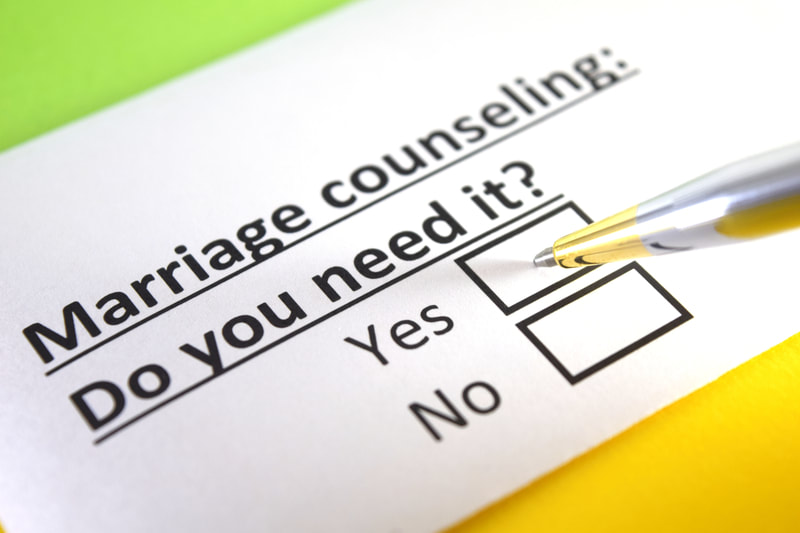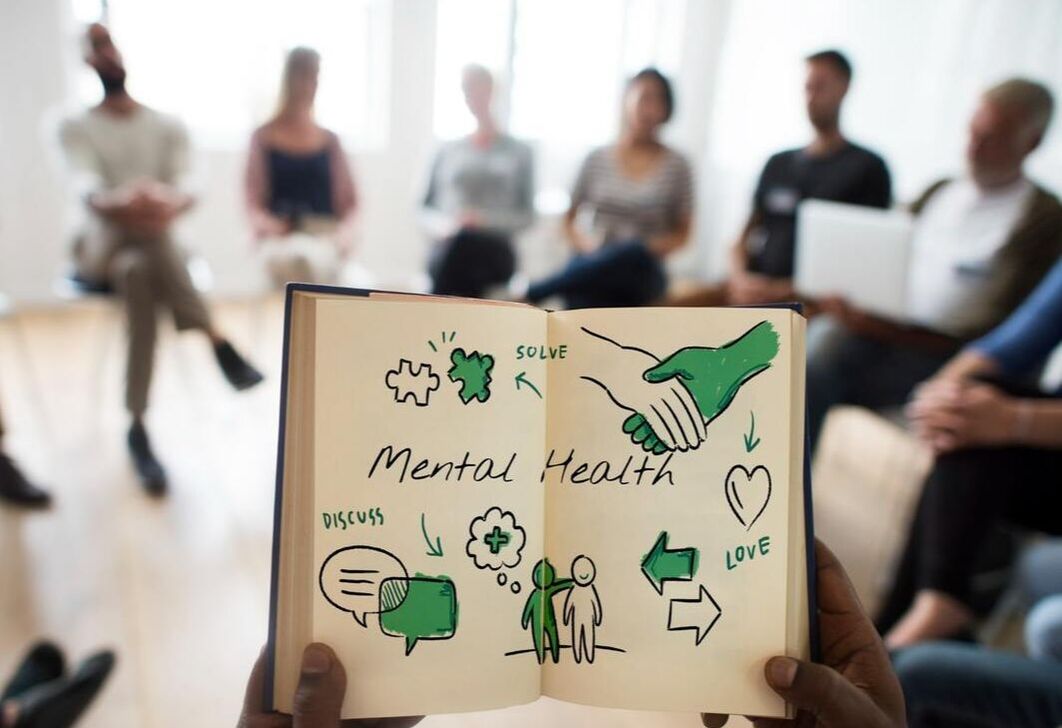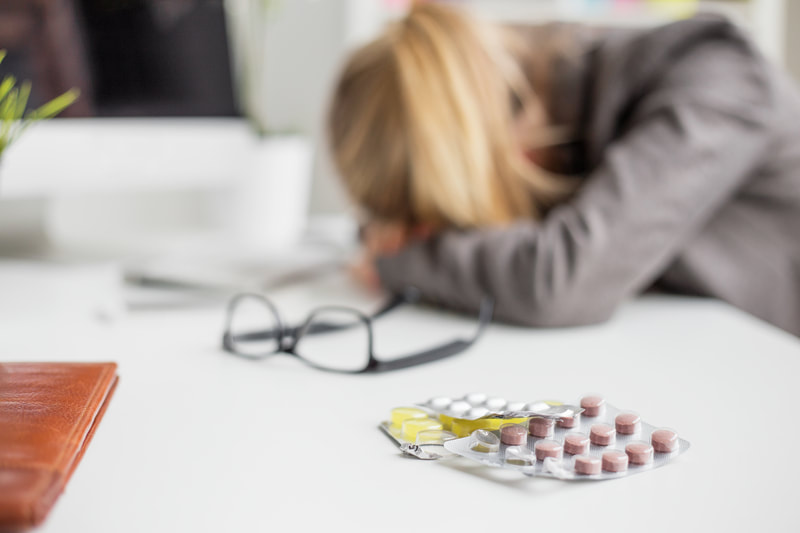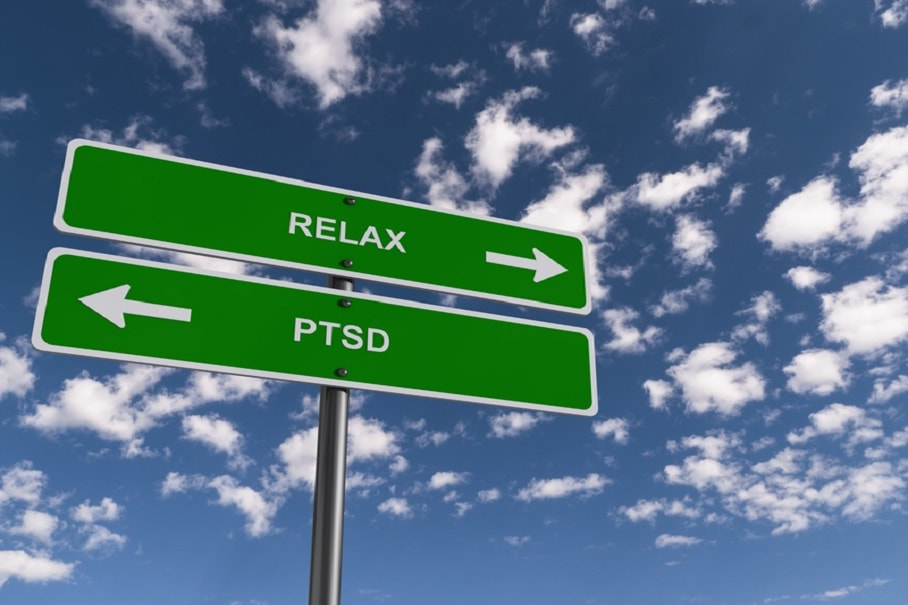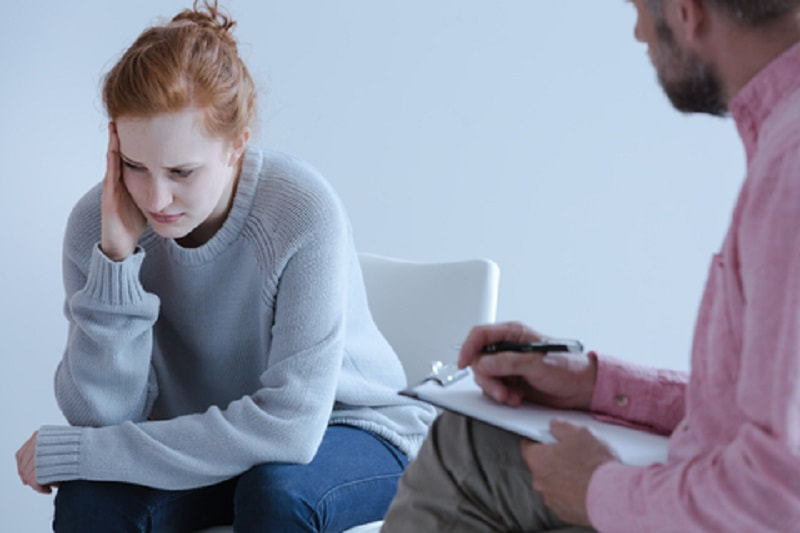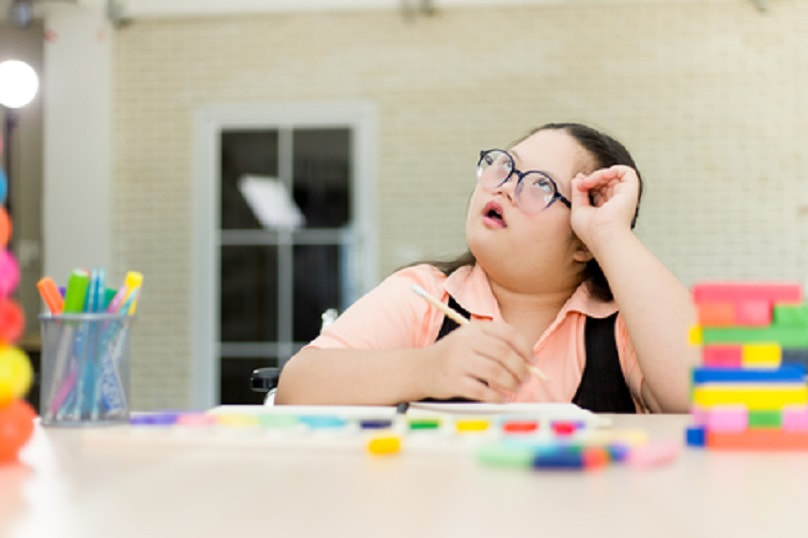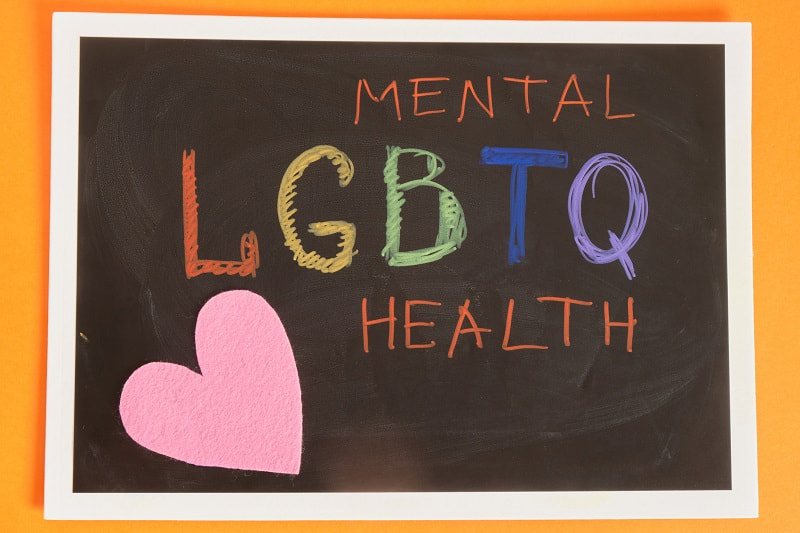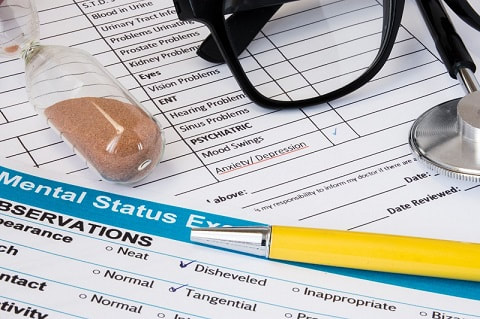|
Do you often turn to food when you feel overwhelmed, or your emotions run high? You are not alone. Turning to food for comfort during difficult times is a common way of dealing with stress. Our bodies naturally seek nutrition, and a snack can stimulate the brain's reward system, temporarily boosting mood. Although it is usual to resort to emotional eating occasionally, it is essential to develop other strategies to cope with stress if this type of behavior becomes frequent.
To effectively assist those struggling with eating disorders, it is critical to have a comprehensive understanding of these complex mental health conditions and their associated effects. By gaining this knowledge, we can provide the proper care and support required to positively impact the lives of those affected. Let's take a look into the complexities of eating disorders to provide the necessary care and assistance to those in need. Emotional Eating and Its Triggers
Eating disorders manifest through abnormal eating behaviors and distorted perceptions of food, weight, and body image. Such disorders include a range of conditions with varying symptoms and impact on mental and physical health.
1. Anorexia Nervosa - severe food restriction, leading to substantial weight loss and a skewed view of one's body shape. People with anorexia may have compulsive thoughts about food, be terrified of becoming overweight, and strive relentlessly to be thin. 2. Bulimia Nervosa - recurrent binge-eating episodes followed by compensatory behaviors like vomiting or excessive exercise. Those with bulimia often feel a loss of control during binges and may be preoccupied with body shape and weight. 3. Binge Eating Disorder - uncontrollable overeating episodes, often accompanied by guilt and distress. Unlike bulimia, individuals with this disorder do not engage in compensatory behaviors, potentially leading to significant weight gain and associated health issues. It is important to be aware of these disorders and seek professional help from Mental Health Facilities in Orlando for the affected individual to ensure comprehensive care and recovery. An Overview of Cognitive Behavioral Therapy (CBT)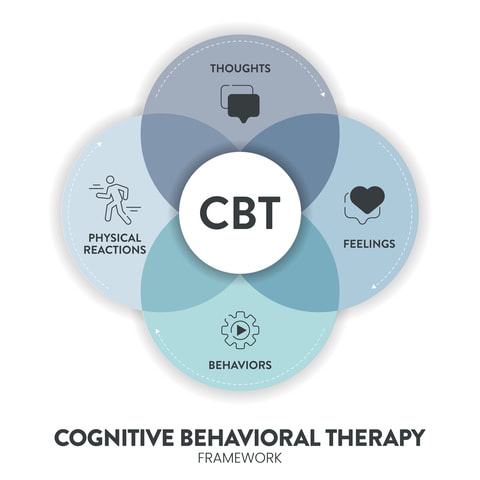
CBT Therapy in Orlando is a proven psychological treatment backed by evidence and has proven effective in addressing a spectrum of mental health challenges, including eating disorders.
Cognitive Behavioral Therapy (CBT) is a therapeutic approach that focuses on the dynamic relationship between cognitions (thoughts and beliefs), emotions, and behaviors. This approach recognizes how individuals think and believe can profoundly influence their emotional states and behaviors. The process of CBT involves:
CBT is a structured and goal-oriented form of psychotherapy that encourages a collaborative relationship between therapist and client. It is a practical approach to problem-solving that focuses on the present and works to identify and modify dysfunctional thought and behavior patterns. Improving Mental Well-being through CBT
Cognitive Behavioral Therapy (CBT) is a proven and practical approach that engages you in purposeful conversations with a qualified mental health expert. Your therapist will skillfully guide you through a structured process, facilitating incremental progress toward your goals. The objective is to establish a nurturing, non-judgmental, and safe environment for candid discussions about your concerns while helping you uncover patterns of unhelpful thoughts and behaviors that can be restructured over time.
Addressing Underlying Emotional Issues CBT, a practical approach to addressing emotional issues, is a critical component of successful weight loss programs. By exploring the connection between thoughts, emotions, and behaviors, CBT for weight loss in Florida helps individuals identify and challenge negative or distorted thought patterns that contribute to emotional distress. Through guided discussions with a qualified therapist, people can explore and reframe these thoughts, paving the way for improved emotional contentment and successful weight management.
Building Resilience and Stress Management Techniques
CBT equips individuals with valuable skills to build resilience and manage stress effectively. Therapists work collaboratively with clients through goal-oriented and time-limited sessions to develop practical coping strategies. These strategies include identifying stress triggers, altering negative thought patterns, and implementing healthy behavioral responses. By mastering these techniques, individuals can enhance their resilience and better navigate stressors. Enhancing Self-esteem and Self-efficacy A key focus of CBT is enhancing self-esteem and self-efficacy, empowering individuals to cultivate a positive self-image and belief in their abilities. Therapists assist clients in recognizing and challenging self-defeating thoughts, fostering a more realistic and affirming self-perception. Through this process, individuals can build confidence, improve their self-worth, and develop a greater belief in their capacity to achieve their goals. Prioritize Your Mental Health with Providers for Healthy Living
At Providers for Healthy Living, we operate a psychotherapy practice that offers in-person and tele-behavioral health services, focusing exclusively on CBT Therapy in Orlando. Our commitment is to provide a personalized approach, guiding individuals through understanding and transforming problematic thought patterns, effectively managing challenging emotions, and identifying and modifying ineffective behavioral routines.
Our team comprises compassionate, highly skilled, and non-judgmental professionals who specialize in evidence-based treatments for various mental health concerns such as anxiety, depression, OCD, panic, social anxiety, and phobias. Our dedication extends beyond financial considerations; we are passionate about helping our clients and their families achieve happiness and vitality.
At our clinic, we foster unity and equality, creating a harmonious and joyful environment. We invite you to discover the power of Cognitive Behavioral Therapy (CBT) and take the steps necessary to create a brighter, healthier future. We are here to support you in achieving a healthier and happier future by exploring the advantages of CBT with us. Connect with Providers for Healthy Living today to take the first step towards positive change.
FAQs
What Is Emotional Eating, and How Does It Impact Mental Well-being?
Emotional eating is when individuals turn to food in response to emotional triggers, such as stress or sadness. It can significantly impact mental well-being by creating a cycle of temporary relief followed by feelings of guilt or discomfort.
What Role Do Healthy Diet and Exercise Play in Mental Well-being?
Maintaining a healthy diet and regular exercise are integral to mental wellness. A balanced lifestyle contributes to physical health, positively influencing mood and cognitive function.
How Do We Address Emotional Issues That Contribute to Emotional Eating?
Addressing emotional issues linked to emotional eating involves therapeutic approaches like Cognitive Behavioral Therapy (CBT). CBT helps individuals recognize and modify thought patterns contributing to emotional distress.
What Is the Main Reason Behind Emotional Eating?
The main reason behind emotional eating often stems from a desire for comfort or a coping mechanism for emotional distress. Understanding these triggers is crucial in breaking the cycle.
How Can Individuals Build a Sustainable Plan To Maintain Emotional Eating?
Building a sustainable plan to manage emotional eating involves creating awareness of triggers, developing healthier coping mechanisms, and seeking support from mental health professionals if needed.
0 Comments
Having an amazing connection with someone isn't all about being in love - it's much more than that! It takes hard work, understanding, and communication to make it successful. Relationships can be complicated, even when two people get along well. Stressful situations and everyday life can create disputes that seem hard to solve. However, if things don't always go smoothly, that doesn't mean it's a bad relationship. Good days, honest conversations, and moments of happiness contribute to a healthy bond. However, it's important to watch out for frequent misunderstandings leading to conflict. In challenging times, relationship counseling can assist individuals in addressing their issues, overcoming obstacles, and evolving into better partners.
This article covers the fundamentals of relationship counseling – what it can do for you, what to expect, and how to find a qualified therapist. What is Relationship Counseling?
Couples seeking to strengthen their relationship can benefit from relationship counseling in Orlando, also known as couples counseling or couples therapy. This type of psychotherapy can help individuals address many aspects of their relationship, such as communication, interactions, and conflict resolution. Experienced Florida psychiatric therapists are available for consultations to help couples collaboratively work through their issues.
Relationship counseling is not only beneficial for addressing issues within a relationship, but it can also be a valuable tool to strengthen communication and connection between two people. Even couples that are happy and healthy can benefit from counseling as a way to foster their relationship and keep it strong. It is a proactive approach to creating and sustaining a fulfilling romantic relationship Benefits of Relationship Counseling
Engaging in relationship counseling can offer many advantages, allowing couples to cultivate a stronger, more satisfying bond with one another. Let us take a closer look at the potential transformations that can be made by engaging in this type of therapy:

When to Seek Relationship Counseling
Understanding the complications of a relationship poses significant challenges, and there are moments when the guidance of a professional becomes an invaluable resource. Here are common signs that indicate it might be time to consider relationship counseling:
How to Find the Right Relationship Counsellor
Starting the journey to find the right relationship counselor involves careful consideration and research. To assist you in navigating through this procedure, take into account the following steps:

1. Consider Your Individual Needs and Preferences
Before selecting a relationship counselor, take a moment to reflect on your unique needs and preferences. Consider the challenges you and your partner are encountering, along with your communication style and comfort level. Identifying your individual requirements will help you find a counselor whose approach aligns with your goals. 2. Research the Counselor’s Qualifications and Experience Delve into the qualifications and experience of potential relationship counselors. Look for professionals with relevant education and training in couples therapy. Assess their experience in dealing with issues similar to yours. A counselor's expertise can significantly impact the effectiveness of the counseling process, ensuring you receive tailored guidance. 3. Read Online Reviews and Testimonials Explore online reviews and testimonials from previous clients to gain insights into the counselor's reputation. Positive reviews and testimonials often indicate a counselor's ability to establish a positive and effective therapeutic relationship. Conversely, any concerns raised by past clients may inform your decision-making process. Schedule a Consultation for Relationship Wellness
Even in challenging times, there is always hope for improvement in your relationship. Rebuilding a stronger and more satisfying relationship is possible through the power of effective communication. Providers for Healthy Living is committed to enhancing your well-being and guiding you towards the best path for your relationship. Whether you want to rekindle your connection or embark on a new chapter, our professional marriage counselors in Orlando offer support at every step.
Couples can enjoy the convenience of our online Orlando Mental Health Services, whether in Orlando or elsewhere in the state. Our experienced therapists specialize in couples and marriage counseling, providing flexible and effective solutions tailored to your relationship's unique dynamics. Enroll in couples therapy at Providers of Healthy Living today with one of Florida's best marriage and family therapists. This is an investment in your future, a chance to restore love, deepen your connection, and a platform for personal and relational growth. To learn more about our practice and how we can assist you on your journey, click here: "Contact Us." FAQs
How Can Counseling Help With Relationship Issues?
Counseling helps address relationship issues by providing a neutral space for open communication, fostering understanding, and offering guidance on resolving conflicts.
What Are the Different Approaches Used in Relationship Counseling?
Different approaches in relationship counseling include Cognitive Behavioral Therapy (CBT), Emotionally Focused Therapy (EFT), and the Gottman Method, each tailored to the unique needs of couples.
Are There Any Privacy Concerns When Seeking Counseling as a Couple?
Privacy concerns in couples counseling are addressed with strict confidentiality measures, ensuring that personal information is kept secure and discussions remain private.
What Information Should Be Prepared for the Initial Consultation With a Relationship Counselor?
Prepare for the initial consultation by clearly understanding your relationship concerns, goals, and any relevant background information that may help the counselor.
What Can Be Expected From the Consultation Process?
The consultation process involves discussing relationship challenges, setting goals, understanding the counselor's approach, and laying the foundation for future sessions.
Did you know: In 2019, the World Health Organization (WHO) initiated the WHO Special Initiative for Mental Health (2019-2023): Universal Health Coverage for Mental Health. This initiative aims to facilitate access to high-quality and affordable care for mental health conditions in 12 priority countries, reaching an additional 100 million people.
It is essential to seek professional assistance when dealing with mental health issues to promote good overall health. The complexities of mental health matters often require expert attention, and a mental health practitioner can provide invaluable help and guidance in navigating challenging situations. Additionally, reaching out for support contributes to diminishing preconceptions surrounding mental health, fostering greater acceptance and understanding in society. Deciding when to get professional help for mental health concerns can be difficult, as the signs and symptoms can differ from one person to the next. To ensure you receive optimal treatment, it is advisable to conduct thorough research on various mental health professionals and carefully review their feedback. This process can assist you in finding the professional that best suits your needs. If you find yourself overwhelmed by stress, struggling to manage your emotions, or experiencing a disruption in your ability to function due to depression, it could be an indicator to seek professional care. Similarly, it might be the right time to consider professional assistance if you observe these symptoms or similar challenges in a loved one. Recognizing the signs of a more severe condition is crucial in making informed decisions about seeking help. Questions to Ask Yourself Before Seeking Professional Mental Health Support
Before seeking professional mental health support from professional Psychiatric Services in Orlando, it's essential to ask yourself a series of reflective questions. This ensures that you approach this journey with clarity and purpose.
Mental Health Stigma: Becoming a Thing of the Past
The stigma surrounding mental health is gradually becoming a thing of the past as society undergoes a transformative shift in its understanding and perception. Historically, individuals grappling with mental health challenges faced discrimination and prejudice, often hindering open discussions and seeking help. However, as awareness grows and conversations about mental well-being become more prevalent, the once-prevailing stigma is losing its grip.
Recent years have witnessed significant strides in dismantling misconceptions surrounding mental health. Advocacy, education, and increased empathy have played pivotal roles in cultivating a more compassionate and inclusive approach. This positive change is not only altering societal attitudes but also encouraging individuals to embrace their mental health openly. The mental health narrative evolves as we move towards a more enlightened perspective. Breaking free from outdated stigmas allows for a more supportive environment, empowering individuals to seek help without fear of judgment. While challenges persist, the ongoing efforts to eradicate mental health stigma are laying the foundation for a future where mental well-being is prioritized, understood, and destigmatized. The Advantages of Seeking Psychological Help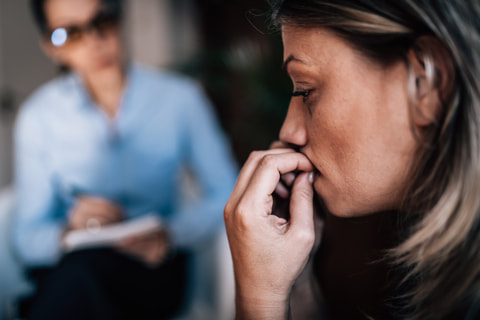
Proactively seeking psychological help from a psychiatrist in Orlando, FL, offers numerous immediate and long-term benefits, including:
1. Take Control of Your Mental Well-being Empower yourself to manage your mental well-being proactively. Navigating a mental health condition can be a solitary journey, and facing challenges in isolation isn't the answer during difficult times. Instead, reaching out for help allows you to build a supportive community that understands your experience. Taking control of your mental well-being involves recognizing the importance of seeking support and fostering connections with those who can understand and assist.
2. Lower Your Risk of Medical Complications
Detrimental effects on mental health can contribute to various medical issues, including poor sleep, sleep disorders, obesity, digestive problems, and other illnesses. Taking the initiative to seek help early can mitigate the risk of developing additional health conditions. 3. Enhance Productivity at Work Mental health conditions can profoundly impact work performance, enabling demotivation and despair. Seeking help presents an opportunity to acquire skills for managing these challenges promoting overall well-being and mental fitness. This equips individuals to perform optimally even in high-pressure situations. 4. Strengthen Your Connections Participating in mental health counseling empowers individuals to reestablish meaningful connections with their loved ones. By promoting clear and honest communication, this therapeutic process catalyzes cultivating robust and healthier relationships. 5. Learn Healthy Coping Mechanisms Professional guidance provides essential coping tools and strategies, empowering you to navigate challenging situations with heightened awareness and resilience. 6. Enjoy an Enhanced Quality of Life Acquiring professional support will help you fortify existing relationships and forge new connections. It's an opportunity to develop managing strategies for daily challenges and understand the best methods for you. This can contribute to a more fulfilling and balanced life. Seven Signs That You Should Seek Psychiatric Help
Understanding the appropriate time to seek professional help for your mental health is a personal journey. It's essential to trust your judgment. Even if you do not identify with the signs mentioned below., it is always advised to ask for help.
1. You Are Having Trouble Staying Focused The impact of poor mental health on work performance is often evident through diminished concentration and productivity. A once enjoyable job may now feel disconnected, indicating a decline in work quality and focus. 2. You Are Having Sleep Problems Insomnia, a common result of depression and anxiety, can significantly impact your ability to function. Constant sleep struggles and poor sleep hygiene may indicate the need for assistance. If you are experiencing challenges with sleep, it's advisable to consult a medical or mental health professional, as various factors can contribute to poor sleep quality. 3. You Are Feeling Isolated and Lonely Poor mental health can create a sense of isolation and discomfort, making it challenging to connect with others. A lack of understanding from peers about your struggles may compound feelings of distress and loneliness. Proficient support is essential for overcoming these challenges, fostering connections, and enhancing contentment and vitality. 4. You Are Using Drugs or Alcohol To Cope If you notice yourself resorting to substance abuse, whether with drugs, alcohol, or changes in eating habits, it could conform as a warning sign. While these coping mechanisms may offer temporary relief, they might indicate underlying issues related to your mental health. Managing the root causes and discovering healthier coping mechanisms are crucial for effective solutions. 5. You Don’t Have Any Enthusiasm Experiencing a loss of interest in activities that once brought joy, as well as a general disinterest in life, can be indicative of underlying issues. In challenging times, rediscovering sources of fulfillment can be overwhelming. Consulting with a professional offers valuable insights and support, aiding in navigating these feelings and rediscovering a sense of purpose. 6. You Are Getting Sick Often Emotional distress and stress have the potential to impact your physical well-being, leading to a spectrum of ailments such as chronic stomach issues, recurrent colds, headaches, and general physical pain. If you find yourself experiencing physical symptoms without a clear medical cause, it's advisable to consult with your medical doctor and inquire about a referral to a mental health professional for further support and guidance. 7. You Have Gone Through Something Traumatic Traumatic events, including but not limited to deaths, breakups, divorces, and job losses, may necessitate counseling for effective resolution. Grief and trauma resulting from such experiences don't always naturally subside and can significantly impact daily functioning if persistent. If you find yourself disengaging from life or withdrawing from loved ones, it could be an appropriate time to seek professional help. Seeking Professional Help: How to Find the Right Provider
Securing professional assistance involves a strategic approach to finding the right mental health provider for your needs. Conduct thorough research and seek recommendations from trusted sources or your primary care doctor. Evaluate their expertise, specialties, and therapeutic methods to ensure alignment with your requirements and preferences. Take into account practical considerations such as location, availability, and financial aspects. Participate in introductory consultations to assess compatibility and establish a comfortable therapeutic alliance. This methodical process ensures the identification of a mental health professional who suits your unique needs, facilitating a supportive and effective therapeutic relationship.
Unlocking Positive Outcomes Through Mental Health Support with Providers for Healthy Living
Seeking help for mental health is an essential step towards general welfare, and it should never carry a stigma. By reaching out, individuals contribute to breaking down societal barriers associated with conditions like anxiety and depression. This enables personal growth and promotes a culture of understanding and compassion.
It's crucial to recognize that finding the right level of care and social support is a personalized journey. Speaking to a primary care doctor can be a valuable initial step, guiding individuals toward more specialized professional help tailored to their needs. At Providers for Healthy Living, we are committed to revolutionizing mental health for all. We offer flexible mental health resources and personalized support in our Orlando Psychiatric Center, ensuring individuals receive the guidance and coaching needed for their unique mental health journey. Together, we can create a workplace environment that prioritizes mental fitness and supports each individual, regardless of where they start. Let's break the barriers and build a healthier, more understanding community. Break free from stigma, explore personalized support, and revolutionize your mental health. Contact us today to prioritize your mental fitness and build a healthier community together. FAQs
How Do I Know When I Need Psychiatric Services?
If you find yourself struggling to manage your emotions, maintain relationships, or perform daily activities due to mental health challenges, it may be time to consider psychiatric services. Persistent feelings of sadness, anxiety, or disruptions in daily functioning are indicators that seeking professional help is advisable.
How Do I Know if Seeking Mental Health Support Is Right for Me?
If you are experiencing emotional distress, difficulty coping with life's challenges, or a decline in overall well-being, seeking mental health support at our Orlando behavioral healthcare center is a valid choice. It becomes the right decision when you recognize that your mental health impacts your daily life, relationships, or overall happiness.
Is There a Specific Age Group That Providers for Healthy Living Caters to in Their Mental Health Services?
Providers for Healthy Living offer mental health services for individuals of all ages. Our inclusive approach ensures that children, adolescents, adults, and seniors can access the support and resources they need for their mental health journey.
What Services Does Providers for Healthy Living Offer for Mental Health Support?
At Providers for Healthy Living, we provide a range of mental health services tailored to individual needs. These may include psychiatric evaluations, counseling, therapy, and personalized support. We aim to offer comprehensive and flexible resources to promote mental fitness across various age groups.
Several factors, encompassing sleep, diet, and exercise, can significantly impact your overall health. While we often prioritize the physical aspect of well-being, it's crucial to consider another dimension — your thoughts, emotions, and actions, which collectively contribute to your behavioral and mental health.
Though these terms are frequently used interchangeably, their subtle distinctions become crucial in diagnosing and treating psychological issues. Managing challenges related to behavioral health differs from addressing those associated with mental health, each requiring distinct approaches. Whether you aim to enhance your understanding of your psychological wellness or assist others in taking control of theirs, gaining insight into the nuances between these terms is valuable. The Center for Behavioral Health in Orlando encompasses a broader spectrum, focusing on how behaviors, lifestyle choices, and external factors impact your health. On the other hand, mental health delves specifically into emotional, psychological, and cognitive contentment. In understanding the nuances between behavioral and mental health, it's essential to recognize the unique signs and symptoms associated with each. This article aims to provide clarity by underscoring the differences between behavioral and cognitive health. This includes a detailed exploration of each disorder's specific signs and symptoms, offering essential insights for awareness. Exploring the Difference Between Behavioral and Mental Health
The critical difference between behavioral and mental health is their roles concerning an individual's emotional and psychological fulfillment. Although interconnected, these terms represent distinct concepts, each contributing uniquely to an individual's health and contentment.
What Is the Distinction Between These Terms? Behavioral health concentrates on the influence of lifestyle, daily habits, and actions on overall health, encompassing aspects like substance abuse, stress management, weight loss, and pain treatment. This scope encompasses mental health, addressing emotional, psychological, and social concerns. In the quest for an improved life, recognizing the integral roles of both behavioral and mental health is central. You can explore the comprehensive support offered by Mental Health Facilities in Orlando to ensure a holistic approach to your wellness. What is Behavioral Health?
Behavioral health confines the impact of our daily cognitive habits on our health, emotions, biology, and behavior. While often used interchangeably with mental health, it is a broader term that extends beyond mental wellness to include how our thoughts manifest in real-life actions.
Maintaining good behavioral health involves adopting behaviors that contribute to achieving an optimal balance of mental and physical well-being. This includes engaging in regular exercise, adhering to a healthy diet, and taking appropriate measures to manage any existing diseases or injuries. The Symptoms of Behavioral Health Common Signs of Behavioral Health Concerns:
Associated Behavioral Health Areas:
What is Mental Health?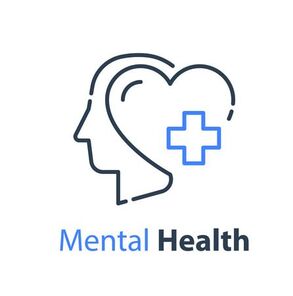
Mental health refers to an individual's psychological and emotional soundness, encompassing their cognitive functions, emotional responses, and mental state. It involves the convoluted interplay between biological factors, environmental influences, and personal experiences. Mental health focuses on nurturing positive mental states and developing effective coping mechanisms. Boosting mental health involves encouraging resilience, managing stress, and promoting a balanced emotional equilibrium to support a fulfilling and productive life.
Common Symptoms of Poor Mental Health:
Associated Mental Disorders:
Empower Your Mind: Steps Towards Better Behavioral Health
Optimizing robust behavioral health is paramount in achieving a healthier and more fulfilling life. Individuals can empower their minds and enhance overall health by undertaking intentional steps and adopting effective strategies. Let's explore critical areas contributing to this transformative enhancement.
Strategies for Making Positive Lifestyle Changes Cultivating positive habits and embracing lifestyle changes are foundational to behavioral health. Prioritizing factors such as nutrition, regular physical activity, and consistent sleep schedules can significantly impact an individual's health. Coping Mechanisms for Stressful Times Navigating and coping with stress is crucial for maintaining behavioral health. Developing effective stress management techniques, practicing mindfulness, and knowing when to seek professional support is essential to building resilience. Interpersonal Skills for Building Connections Building and nurturing meaningful connections is a cornerstone of behavioral health. Improving interpersonal skills, fostering communication, and actively engaging in relationships contribute to a supportive social network, which is vital to holistic balance. Exploring Mental Health for Well-being Regular check-ins on mental health and a proactive approach to exploring mental well-being are integral. Considering counseling or Behavioral Therapy in Orlando, staying informed about mental health resources, and being attuned to one's emotional state contribute to a thriving behavioral health journey. Six Ways to Enhance Your Outlook with a Positive Perspective
Let's explore six practical ways to enhance your outlook and infuse positivity into your daily life.
1. Taking Positive Measure Life is a journey marked by inevitable highs and lows. When things don't go as planned, or there's a lack of progress, the usual reaction is thinking negatively or expressing frustration. However, if your thoughts become increasingly pessimistic, leading to a consistently gloomy outlook, it's time to take positive action. The initial step in reshaping your perspective is pinpointing areas of your life prone to negativity and devising a plan for responding constructively. Dedicate time to assess the challenges that often obscure your view and develop strategic steps to redirect and transform these situations. 2. Establishing Goals for Long-term Success Invest time in initiating the establishment of both long-term and short-term goals that are realistically achievable. Document and outline your plans to create a clear path for their accomplishment. If some goals seem ambitious or overwhelming, break them down into smaller, more manageable objectives. To ensure accountability, consider sharing your goals with a trusted friend or family member. Goal-setting can manifest in various ways, so find an approach that suits you best and strive throughout the year to turn it into reality. 3. Focusing on Serving Others Engaging in acts of kindness, whether through volunteering, helping an elderly neighbor, or contributing to a charitable cause, is a straightforward yet incredibly impactful method to enhance your perspective on life. Not only does it uplift your outlook, but it also positively impacts the lives of those in need. The research underscores the numerous advantages of helping others, such as alleviating symptoms of depression, facilitating social connections, and mitigating feelings of loneliness or frustration. Prioritizing kindness and generosity can open up a wealth of benefits and possibilities. 4. Cultivating an Attitude of Gratitude An integral aspect of maintaining a positive mindset involves practicing gratitude. In challenging situations or difficult days, reflecting on someone or something that has positively influenced your life or recalling joyful moments can significantly shift your perspective. Consider adopting a gratitude journal, where dedicated time is spent listing the positive aspects of your life and expressing gratitude. This not only enhances self-esteem and provides grounds for optimism but also enables you to gain valuable perspective on life's challenges and reflect on past adversities where resilience prevailed. 5. Crafting a Powerful Morning Routine We all encounter those mornings where a hiccup can set the tone for a negative day. If this becomes a recurring pattern, it's essential to take proactive steps to initiate a positive change and kickstart each day on a positive note. A practical and straightforward strategy is to adjust your sleep schedule. Consider establishing a routine of going to bed earlier and waking up earlier. This adjustment provides additional time for activities such as exercise or savoring a cup of coffee without time pressures and ensures you wake up well-rested, enabling a positive start to your day. 6. Avoiding Comparisons to Others As we navigate the complexities of the digital age, the pressure to keep pace with the lives portrayed on social media platforms can significantly impact our mental and emotional well-being. This pervasive influence often leads to diminished self-worth, increased susceptibility to depression, and a host of behavioral challenges. Amidst these challenges, it is essential to proactively nurture personal resilience. This involves shifting one's mindset away from comparison towards a focus on self-improvement and individual aspirations. Key strategies include recognizing and addressing triggers contributing to feelings of inadequacy, minimizing exposure to social media, and highlighting personal strengths and achievements. Make Positive Improvements: Seek Support from Providers for Healthy Living
Behavioral health and mental health are connected to almost every aspect of our lives, encompassing our physical health and contentment. Despite the challenges we may face in making enhancements, we must not recognize these fundamental components of our health. There are various steps that anyone can take to make meaningful progress in these areas.
Fortunately, there are numerous steps that anyone can undertake to make substantial strides in their vitality. As you initiate the journey of self-improvement, bolstering your perspective and attitude is a potent starting point. Simple actions such as developing mindfulness or setting achievable goals can significantly impact your wellness. If you seek ways to improve your mental health and well-being or are grappling with life's challenges, connect with Providers for Healthy Living, one of the leading mental health facilities in Orlando. Our experienced team is committed to guiding you toward enhanced cognitive and behavioral health. Take a step towards a healthier and more fulfilling life--contact us today! FAQs
How Do I Know If I Should Be Concerned About My Behavioral Health?
Pay attention to persistent changes in mood, difficulty coping with stress, disruptions in sleep or eating patterns, and impacts on relationships and daily functioning. If you find managing thoughts or behaviors affecting your quality of life challenging, seeking professional help is advisable. Taking proactive steps is crucial for enhancing mental health, and professionals are readily available to offer personalized guidance tailored to your needs.
What Are the Key Benefits of Seeking Professional Mental Health Support?
Professional mental health support offers numerous immediate and long-term benefits. These include acquiring coping tools and strategies, building a supportive community, minimizing the risk of developing other health conditions, and enhancing work performance.
What Signs Indicate That Opting for Mental Health Support Is Right for Me?
Signs that may indicate the need for mental health support include persistent feelings of stress, emotional distress, difficulty in controlling emotions, and interference of mental health conditions with daily functioning. Recognizing these signs is crucial in determining when it might be the right time to seek professional care.
What Factors Should I Consider When Trying To Find the Right Mental Health Provider for Me?
When searching for the right mental health provider, consider factors such as their expertise in addressing your specific concerns, the compatibility of their treatment approaches with your preferences, and their accessibility. Obtain recommendations from trusted sources, explore the available resources, and ensure the provider meets your unique needs.
What Services Do Providers for Healthy Living Offer in Mental Health Support?
Providers for Healthy Living offers comprehensive mental health support, including strategies for positive lifestyle changes, coping mechanisms for stressful times, interpersonal skills development, and exploration of mental health for overall well-being. Our Orlando mental health services are designed to empower individuals on their unique mental health journeys, fostering resilience and personal growth.
Post-traumatic stress disorder is another debilitating psychological condition that needs appropriate treatment and the sooner it is treated, the better the outcome. Individuals with PTSD often feel there is no way to treat their condition. But, with professional psychiatric services in Orlando, it is possible to treat this disorder. The early recognition of PTSD symptoms with professional support profoundly impacts a patient's recovery and traumatic experiences. In this blog, we will look at the advantages of PTSD Counseling and how seeking post-traumatic stress disorder counseling in Orlando in the early stages can benefit a patient's recovery.
8 Advantages of Seeking PTSD Counseling in Early Stages
According to research by World Health Organization, According to the World Health Organization (WHO), approximately 250 million people around the world have experienced PTSD symptoms in the past year. The most common symptoms were:
As a human being, it is common to neglect the early symptoms and think it might resolve on its own. Over time, trauma symptoms can worsen, however, and sometimes, it might cost someone's life. To avoid this devastating condition, PTSD counseling in Orlando is the best and most effective treatment to treat symptoms early. Here are some advantages of considering PTSD counseling soon after a traumatic event: 1. Stops Symptoms from Getting Worse A common myth about PTSD symptoms is that these symptoms are considered part of the body's natural response to any stressful event. Traumatic events such as accidents or losing a loved one usually come out of the blue and can lead to severe symptoms in some individuals. Early diagnosis of these symptoms can stop this progression and ensure a better outcome for the patient. 2. Improved Sleep Cycle Research from the National Library of Medicine reports that 70-91% of patients with post-traumatic stress disorder have disturbed sleep cycles. They often experience difficulty falling or staying asleep. Professional psychiatric services in Orlando can help to prevent sleep-disruptive behaviors that cause nightmares and insomnia. They can also help improve sleep quality and relieve night terrors. 3. Reduces Anxiety Levels Excessive anxiety levels are one of the most prominent PTSD symptoms that affect people's daily activities. Sudden anxiety attacks and severe stress levels characterize PTSD. When struggling with PTSD symptoms, coping with anxiety becomes a struggle. PTSD counseling consists of one-on-one talk sessions where the people express themselves freely and learn strategies to decrease anxiety. 4. Quick Coping Strategies Healing from PTSD takes time and requires consistency and patience to deal with symptoms. PTSD counseling consists of coping strategies that are beneficial in relieving symptoms and contribute towards a better and healthier lifestyle. These strategies are:
5. Faster Recovery Individuals who have experienced trauma avoid getting treatment if it means discussing their condition. This hinders their recovery and negatively impacts their behavior. It is best to seek professional help when you notice the symptoms. PTSD counseling with evidence-based treatments ensures faster recovery and a better overall well-being. 6. Prevents Chronic PTSD Conditions Untreated PTSD symptoms can be a significant reason for chronic PTSD conditions such as depression, substance abuse, self-harm, and even suicidal thoughts. PTSD counseling treats the core symptoms and decreases the chances of other chronic disorders developing. Getting early treatment improves overall functioning and educates people to adopt and implement changes in their lives which allow them to heal from their trauma. 7. Restoration of Confidence Through ongoing therapy sessions, early trauma counseling addresses avoidance behaviors and leads to the restoration of confidence. Reconnecting with the activities and connections that bring happiness and satisfaction is essential to a confident personality. As a result, individuals rebuild their trust in social interactions and can better adapt to their present environments. 8. Mental Recovery PTSD primarily affects an individual's mental health and emotional well-being. Professional psychiatric services in Orlando work on restoring mental stability in a supportive environment. As individuals gain better insight into the emotional state of their trauma, they are more prepared to control their emotions, ultimately experiencing improved psychological health. What Should I Expect During A PTSD Counseling Session?
You have decided to seek counseling to eliminate traumatizing symptoms--now what? You must be concerned with how PTSD Counseling will work for you. It is expected to have these questions in mind before starting counseling sessions. In this scenario, PTSD counseling in Orlando offers valuable help getting patients out of their comfort zones and ready to talk about their past traumas in an open, honest, and comforting way. As experienced medical professionals, counselors actively listen and provide treatment plans for PTSD treatment. Here is an overview of what you can expect from your PTSD counseling session:
1. Confidentiality and Trust Any mental health treatment is unsuccessful without confidentiality and trust. These two parameters are crucial to ensure the person feels comfortable sharing. During counseling sessions, the patient's information is kept strictly confidential. This creates a non-judgmental space for individuals to express their symptoms, concerns, and needs without worrying about losing trust. 2. Stabilization and Symptoms Management PTSD symptoms should be treated under professional guidance as these can pose other severe life challenges. In the initial stage, the therapist works on providing stability and restoring a sense of safety. These techniques help prevent symptoms getting worse as you process the trauma in future therapy sessions. 3. Emotional Processing It is common for individuals with symptoms to feel different emotions simultaneously. Some days, they feel extremely low, while on other days, they might want to do something interesting. Counselors help in treating this emotional imbalance through a range of therapies. These therapies assist individuals in assessing the emotions associated with a certain event and develop skills to cope with them more effectively. 4. Exposure and Confrontation Exposure therapy or similar techniques enable individuals to identify trauma-related triggers and environments. This counseling stage aims to reduce avoidance behaviors and desensitize you to distressing stimuli. Your therapist will work with you to gradually face and process these triggers, which can be highly useful in lowering the impact of your trauma on your mind. 5. Active Participation Your active participation in sessions is pivotal. Therapy is more successful if you are motivated to share your traumas, feelings, and any challenges you're facing. Therapy is a collaborative process, and your feedback is highly valued. Expect to engage in open and honest discussions with your counselor, as this will help guide your treatment and ensure that it aligns with your specific needs and goals.
Self-Help Tips To Prepare Yourself
Your Path to a Healthier Mind Begins With Providers for Healthy Living
Seeking PTSD treatment for timely recovery and healing is a wise decision that needs to be taken into consideration as soon as you start getting any trauma-related symptoms. Having PTSD is a continuous struggle with thoughts and emotions, and you need to be kind to yourself to heal from this traumatizing experience. Don’t be afraid to get treatment if you are struggling in order to improve your quality of life. Through post-traumatic disorder counseling in Orlando, you can realize how great life can be after getting PTSD treatment.
If you or your loved one is experiencing persistent PTSD symptoms, Providers for Health Living can help with your or their recovery. Through our counseling sessions, we provide evidence-based mental health services for our patients’ improved quality of life. To get help with PTSD counseling in Orlando, contact us, and we will provide the best and most suitable treatments for your condition. FAQs
Who should consider seeking PTSD counseling?
Anyone who has experienced a traumatic event and is struggling to cope with flashbacks, nightmares, or severe anxiety should consider seeking PTSD counseling.
Are there different approaches to PTSD counseling, and which one is right for me?
Yes, various approaches exist, including CBT, DBT, EMDR, hypnotherapy, and biofeedback. The choice depends on your specific needs and the counselor's expertise.
How will I know if PTSD counseling is working for me?
You can analyze your improvement by measuring successful outcomes, including reduced symptoms, improved daily functioning, and a better quality of life.
How often should I attend sessions?
The frequency of sessions may start weekly and gradually decrease as progress is made. The counselor will work with you to determine the best schedule.
Behavioral therapy, a promising and widely accepted approach to autism spectrum disorder, has improved many kids' conditions. Based on published research, behavioral therapy has an 89% success rate, making it an ideal technique for treating kids with Autism. Parents of children with autism symptoms understand the importance of early diagnosis and appropriate treatment for their kid's better future. This blog post will outline the promising impact of professional psychiatric services in Orlando for kids with Autism and how behavioral therapy in Orlando can be a game-changing decision in improving your kid's quality of life.
What is Autism, and How Does it Affect Kids?
Autism Spectrum Disorder (ASD) is a neurodevelopmental disorder that affects children's development and social skills. A recent study from the CDC shows that one out of 36 children aged 8 years were estimated to suffer from Autism. Children with autism face difficulties in communicating and with social interactions. This disorder's causes are not defined, and symptoms vary from person to person. For kids, this condition usually starts in their development stage, which impacts their studies, growth, and future opportunities. They often have different ways of learning, behaving, and listening.
Symptoms of Autism for Kids
How Autism Affects Learning at School
School plays a pivotal role in any kid's life, but for some kids with autism, it can be a difficult environment. This is the place where kids grow, learn new skills, and prepare for their future. For many autistic kids, school is more challenging than any other environment because they spend a significant amount of time there with other people they aren’t familiar with and school routines often change. Autism can affect kid's learning in the following ways:
What Is Behavioral Therapy and Why It Is Vital for Kids with Autism?
Behavioral therapy focuses on improving conditions by carefully examining the behavior patterns and implementing result-oriented strategies to change the situation. Counselors adopt different approaches, such as rewarding kids after performing simple tasks, to ensure consistent growth and development.
How Does Behavioral Therapy Help Kids With Autism?
Bring A Positive Change In Your Child's Future!
Considering behavioral therapy for autism is not just about addressing the challenges today; it's about shaping a brighter tomorrow for your child. Through the power of professional psychiatric services in Orlando, you can open your child's true potential, enabling them to succeed in a world full of opportunities.
To connect with experienced professionals for behavioral counseling in Orlando, consider Providers for Healthy Living. We can guide you in creating a nurturing environment that complements your child's progress in therapy, ensuring gradual improvements, and an enriching path toward a healthier, happier future. Take the first step today and be a part of the positive change in your child's life. Your child's potential is boundless; we can help them reach for the stars together. FAQs
At what age should a child with autism start behavioral therapy?
Early intervention is recommended, so starting as soon as a child is diagnosed is best. Behavioral therapy can be beneficial at any age.
Are parents involved in behavioral therapy for their child with autism?
Yes, parents often play an active role in therapy. They are usually taught strategies to support their child's progress and reinforce learned behaviors at home.
Can children with autism benefit from a combination of different therapies?
Many children with autism receive a combination of therapies, including speech therapy, occupational therapy, and behavioral therapy, to address their unique needs.
How can I find a qualified therapist or behavior analyst for my child with autism?
Seek recommendations from your child's healthcare provider, local autism organizations, or autism support groups. Ensure that the therapist is experienced in working with children on the autism spectrum. To connect with experienced professionals for behavioral counseling in Orlando, consider Providers for Healthy Living. We are here to help!
In recent years, the LGBTQ+ community has made significant progress toward acceptance and equal rights. However, LGBTQ+ individuals may face difficulties in self-acceptance and mental health. LGBTQ+ people still confront particular challenges that might impact their mental health despite increasing mainstream acceptance. In this blog, we will look into the factors that contribute to the LGBTQ+ community's higher prevalence of mental health problems, the anxieties that they frequently face, and the significance of mental health services, including specialized psychiatrists in Orlando, FL, to support their well-being. Why Does the LGBTQ+ Community Suffer From Mental Illness?The LGBTQ+ community faces high rates of mental illness due to widespread stigma, discrimination, and social rejection. The constant exposure to negativity and the fear of rejection when coming out can lead to stress, anxiety, and chronic depression. Some LGBTQ+ individuals internalize social prejudice and nurture feelings of shame and self-loathing. Bullying, hate crimes, and violence disproportionately affect this community, often leading to trauma and post-traumatic stress disorder (PTSD). Addressing these externalities is essential in promoting inclusion, culturally appropriate mental health care, and reducing disparities. The Relation Between LGBTQ+ and Mental CrisisIt is important to understand that differences in mental health among LGBTQ+ people are not necessarily related to their sexual orientation or gender identity. Instead, the discrimination individuals experience and societal factors are to blame for these differences. LGBTQ+ people have a roughly three-fold higher risk of developing a mental health illness than the general population, according to the National Alliance on Mental Illness (NAMI). Fears of LGBTQ+ People
Why are Mental Health Services Important For LGBTQ+ People?
The Role of LGBTQ+ Support GroupsSupport groups designed especially for LGBTQ+ people can be very helpful for mental health. People can connect with others who can relate to their challenges in these groups, discuss their stories, and get support from their peers in a secure environment. Support groups can cover a variety of subjects, such as coming out, relationship difficulties, overcoming discrimination, and utilizing the healthcare system. LGBTQ+ community centers frequently provide support groups and resources for these people. The Importance of Inclusivity in Mental HealthcareMental healthcare providers must be aware of LGBTQ+ concerns and dedicated to offering inclusive and affirming care. LGBTQ+ people are guaranteed the support and affirmation they require without prejudice or discrimination when they get culturally competent care. In Orlando, behavioral healthcare professionals are committed to providing LGBTQ+ people with services that are accepting and sensitive to cultural differences. These service providers are aware of the particular difficulties experienced by LGBTQ+ people and strive to foster a welcoming and secure environment for all. Intersectionality and LGBTQ+ Mental HealthIt is critical to understand that LGBTQ+ people might be members of several marginalized groups, which can result in complex and interconnected forms of discrimination and inequities in mental health. The term "intersectionality" describes how social categories like race, gender, and sexual orientation are connected and how they overlap to produce different experiences. For LGBTQ+ individuals of color, for instance, racism may exacerbate the prejudice they experience, which can worsen its effects on their mental health. Recognizing and addressing intersectionality is vital in providing comprehensive mental healthcare for all LGBTQ+ individuals. LGBTQ+ Youth and Mental HealthLGBTQ+ youth are especially at risk for mental health issues. Adolescence can be challenging for people to learn who they are and come out. LGBTQ+ youth may experience despair, anxiety, and even homelessness due to bullying, rejection, and a lack of support from friends or family. LGBTQ+ youth organizations and inclusive school policies are only two supportive environments that can significantly improve a person's mental health. For LGBTQ+ adolescents to effectively traverse these issues, mental health services must be adapted to their specific requirements. The Impact of Legal Rights on LGBTQ+ Mental HealthThe mental health of LGBTQ+ people has improved as a result of improvements in legal rights and protections. Many places' passage of anti-discrimination laws and the legalization of same-sex unions have helped lessen some of the anxieties and pressures of discrimination. Although not all LGBTQ+ people have equal access to these protections, they must remember that legal rights can differ by location. Continued activism and awareness are essential for the community's mental health because the struggle for LGBTQ+ rights is ongoing, and obstacles still exist. The Need for LGBTQ+ Inclusive Sex EducationFor the mental health and general well-being of LGBTQ+ youth, comprehensive sex education that covers LGBTQ+ subjects is crucial. Many educational systems' sex education curricula are heteronormative and do not include LGBTQ+ identities and experiences. Youth who identify as LGBTQ+ may experience emotions of exclusion and disorientation due to the lack of inclusive education. LGBTQ+ kids can benefit from inclusive sex education by better understanding their identities, navigating relationships, and making educated decisions regarding their sexual health. It also promotes a more tolerant and empathetic society, lessening stigma and discrimination. When To Reach a Psychiatrist In Orlando, FL?For LGBTQ+ people who may be struggling with mental health issues, knowing when to get professional assistance is vital. Here are some indicators that it might be necessary to seek help from an Orlando, Florida, psychiatrist:
Building Resilience in the LGBTQ+ CommunityResilience is the ability to bounce back from adversity, and LGBTQ+ individuals have shown remarkable resilience in the face of discrimination and mental health challenges. Building resilience can be a powerful tool for improving mental health and wellbeing. Some strategies for building resilience in LGBTQ+ communities include:
Orlando Psychiatric Services for LGBTQ+ WellbeingDon't be afraid to get treatment if you or someone you know is experiencing mental health problems connected to their LGBTQ+ identity. Orlando psychiatrists provide expert assistance to LGBTQ+ people in overcoming these obstacles and reaching mental wellness. Remember that asking for help is a sign of strength and that you deserve the service and care required to live a healthy and meaningful life. We can work toward a future where LGBTQ+ people have the same mental health and well-being as everyone else by continuing to spread awareness, fight for LGBTQ+ rights, and encourage inclusiveness and acceptance.
In a society where physical health is frequently prioritized, many people still battle silently with their mental health. Millions of people struggle invisibly in this everyday struggle behind their smiles and daily work. It is impossible to stress how important mental health is because it has an impact on all parts of our lives, including our relationships, careers, and physical health. This blog will look at six indicators of poor mental health and explain why getting help is vital for healing. There are mental health facilities in Orlando that provide essential support and resources if you or someone you know needs them. Why Is Recognizing the Signs of Mental Health Struggles Important?The first step to recovery is recognizing the symptoms of declining mental health. Understanding these signs can be a lifesaver, just as we pay attention to our physical health by identifying illness symptoms. It is crucial for society as a whole as well as for individuals. Prompt attention to mental health disorders not only improves the well-being of the person but also eases the strain on healthcare systems and builds a happier, healthier society. Let's get into the six signs of bad mental health that everyone should be aware of: Sign 1: Persistent and Overwhelming Sadness One of the most common symptoms of a mental health problem is persistent and overwhelming distress. We all experience sad moments, but it's a red flag when these feelings constantly interfere with daily life. People with depression often describe it as a heavy burden they always carry. Persistent pain can lead to loss of interest in activities, difficulty concentrating, changes in appetite, and sleep disturbances. It can also cause physical symptoms such as headaches or abdominal pain. If you or someone you know is experiencing this, seeking help from mental health services in Orlando is essential. Sign 2: Heightened Anxiety and Excessive Worry Although anxiety is a normal stress reaction, it can be an indication of a mental health problem if it becomes overwhelming and unmanageable. In addition to persistent worry, restlessness, and irritability, anxiety disorders like generalized anxiety disorder (GAD), social anxiety disorder, or panic disorder can also cause physical symptoms like a racing heart or shortness of breath. When anxiety is present, it can be extremely difficult to carry out daily duties and sustain relationships. Finding behavioral therapy in Orlando after recognizing these signs might give you helpful coping mechanisms and assistance. Sign 3: Extreme Mood Swings and Irritability Extreme mood swings and irritation are further indicators of a mental health problem. While everyone occasionally experiences mood swings, prolonged and excessive mood swings may point to underlying mental health problems. In diseases like bipolar illness, these mood fluctuations can vary from extreme highs (mania) to profound lows (depression). Irritability is another typical sign of many mental health conditions, such as anxiety and mood disorders. Relationships may suffer, and one's general quality of life may be affected. People can control their mood fluctuations and achieve emotional equilibrium through mental health treatments. Sign 4: Social Withdrawal and Isolation A serious indicator of declining mental health is isolating from friends and relatives. Depression, anxiety, or other mental health illnesses may be present when people isolate themselves more and more from their social networks. Because it frequently results in feelings of loneliness and helplessness, social isolation can make mental health problems worse. Orlando behavioral therapy can assist people with making friends and creating practical coping skills to help them deal with solitude. Sign 5: Changes in Sleep Patterns and Energy Levels Changes in sleep and energy levels are frequently associated with difficulties with mental health. A prevalent symptom of many mental health conditions, such as depression and anxiety, is insomnia, defined as having trouble sleeping or staying asleep. On the other hand, hypersomnia or excessive sleep can also be a symptom of sadness or other mood disorders. Mood swings or other mental health problems may be accompanied by changes in energy levels, such as bursts of hyperactivity or exhaustion. Sign 6: Substance Abuse and Self-Destructive Behavior The use of drugs or alcohol as a coping mechanism for emotional anguish is one of the most worrisome indicators of declining mental health. In many cases, mental health issues and substance abuse—including alcohol and drug addiction—coexist. As a kind of self-medication and temporary solace, people may turn to drugs and alcohol. Another worrying indication of severe mental health problems is self-destructive behavior, such as self-harm or suicidal ideas. It's crucial to detect these signals immediately to stop more damage and get assistance. The Power of Professional Help: Why Mental Health Services MatterMental health services such as behavioral therapy, counseling, and psychotherapy are important for individuals struggling with mental health problems. Seeking professional help can be a game changer on the journey to recovery. Here’s why it matters:
Destigmatizing Mental Health ServicesThe stigma surrounding mental health disorders is one of the obstacles to receiving mental health services. Although society has made tremendous progress in recent years in eradicating this stigma, more has to be done. It's crucial to realize that asking for assistance with mental health issues is a sign of strength, not weakness. Orlando's mental health services are run by caring experts committed to assisting people in overcoming their difficulties. These services offer people a secure and encouraging setting to address their mental health issues. Starting the Journey to RecoveryIf you or someone you know is experiencing any of the symptoms mentioned above of declining mental health, getting help and taking the first steps to recovery is essential. Here are some things to consider:
Building a Healthier Tomorrow: Providers for Healthy Living’s Mental Health ServicesRecognizing the symptoms of poor mental health is vital for the well-being of individuals and society. The six symptoms we discussed – persistent distress, severe anxiety, severe mood swings, social withdrawal, sleep problems, and substance abuse – may indicate an underlying mental illness, and attention must be paid to it.
The power of professional support should not be underestimated. Providers for Healthy Living is available to support and treat individuals struggling with mental illness. Getting help and breaking the stigma surrounding mental health can build a healthier, happier future for ourselves and our communities. If you or someone you know requires mental health services in Orlando, do not hesitate to contact Providers for Healthy Living. We can guide you on the road to recovery. Remember, seeking help shows strength and hope for a brighter future. |
LOCATED AT 341 N MAITLAND AVE, STE 340, Maitland, fl 32751 |
Telephone and fax -
|
OUR SERVICES | OUR TEAM | OUR BLOG | CONTACT US | SITEMAP
|




